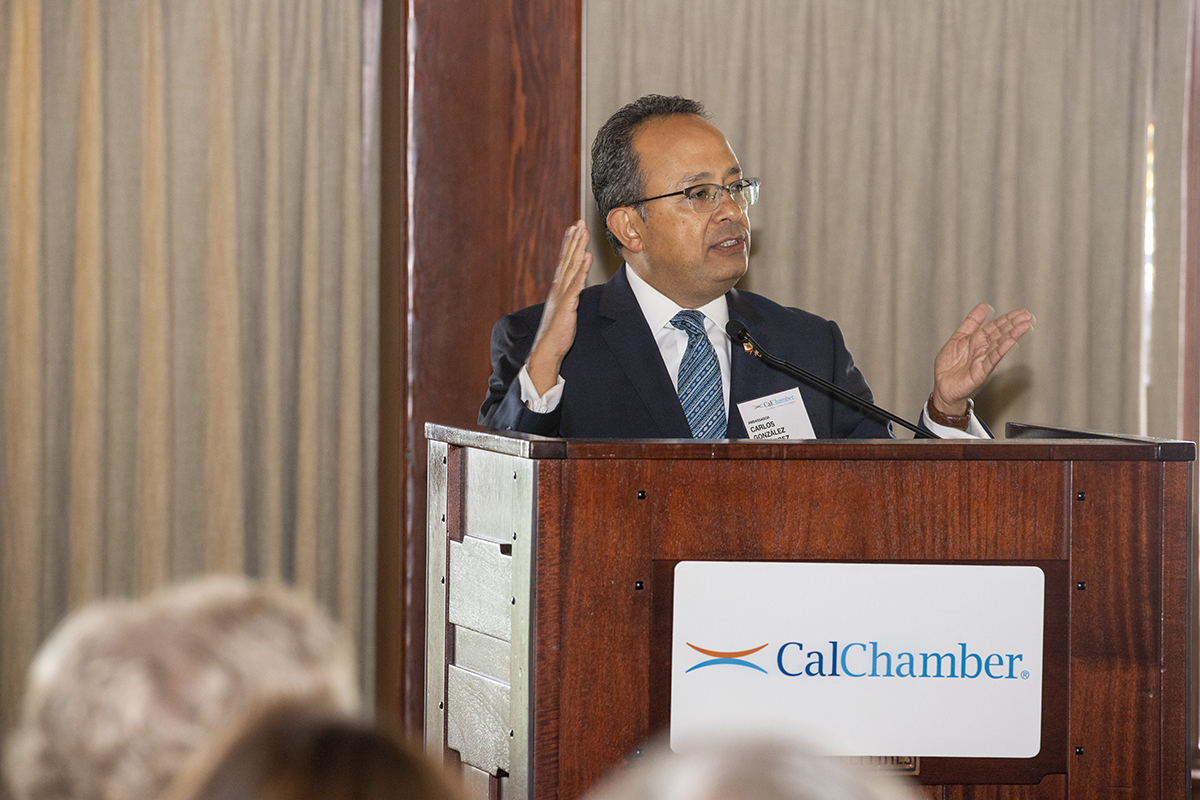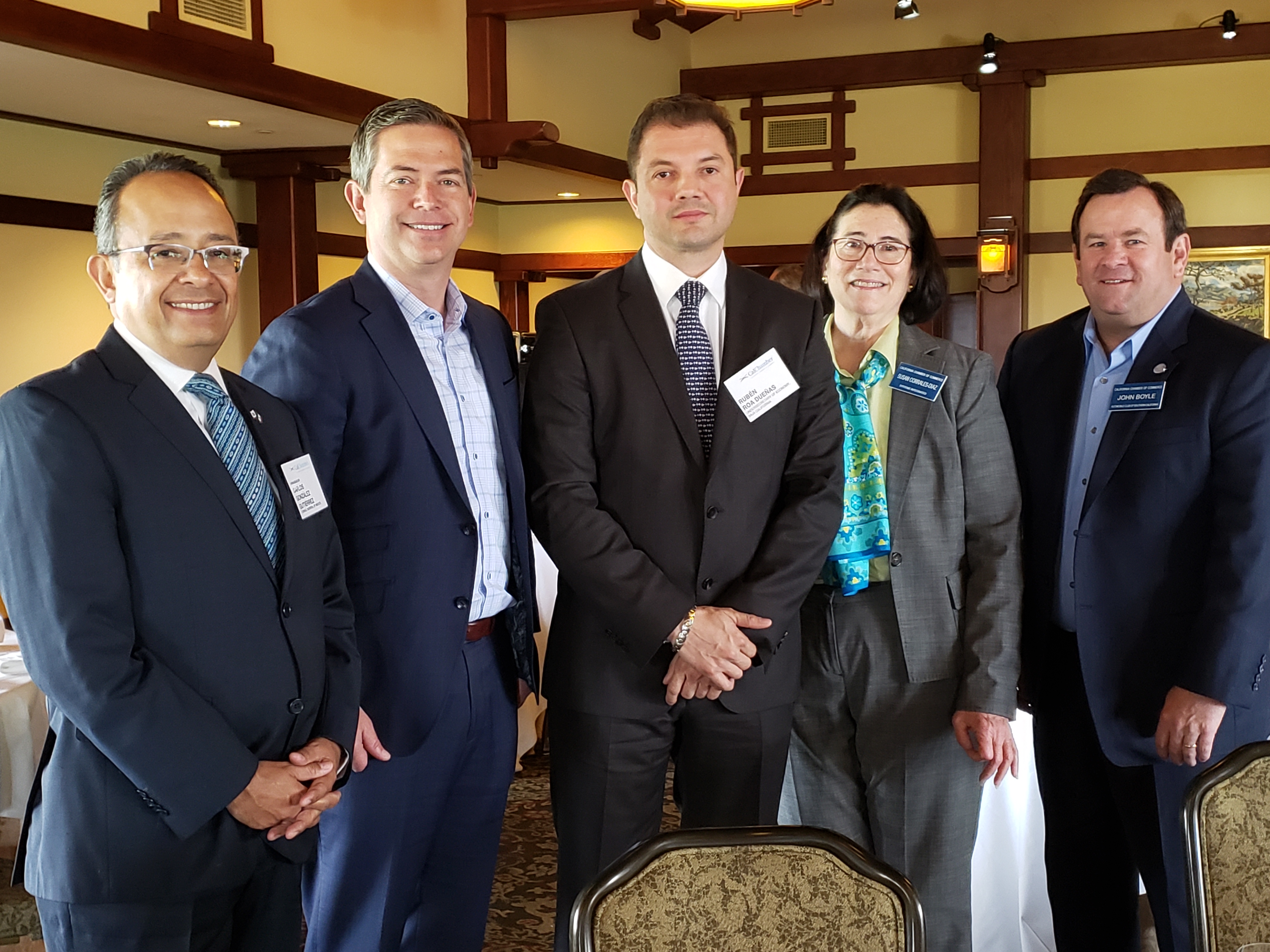The cross-border connections that make the Baja California region a dynamic economic center were the focus of a recent California Chamber of Commerce international breakfast meeting at The Lodge at Torrey Pines in La Jolla.
Speakers at the February 28 gathering hosted by the CalChamber Council for International Trade were Rubén Roa Dueñas, undersecretary of the economy for the State of Baja California, Mexico; and Ambassador Carlos González Gutiérrez, consul general of Mexico, San Diego.
The Automobile Club of Southern California sponsored the breakfast, which was held in conjunction with the CalChamber Board of Directors meeting.


‘2 Countries, 1 Region’
Consul General González Gutiérrez described the border area as “two countries, one region,” a model of the success that financial cooperation can produce.
The “close and daily interaction between Baja and Southern California shows the enormous potential that cross-border cooperation has for Mexicans and Californians alike,” he said.
Each day, he noted, 145,000 people—both Anglo and Mexican—commute between Tijuana and San Diego.
The number of cross-border crossings reached a peak shortly before the 9/11 attacks and are close to reaching that peak again now, 19 years later.
The importance of the cross-border transactions have led to innovations in speeding passages, he commented. Most notable of the innovations was the construction of the Cross Border Xpress (CBX) bridge between the United States and Mexico. The CBX bridge makes it easy for travelers to cross the border with little difficulty from San Diego to the Tijuana International Airport, the Consul General said.
Finding Common Solutions
Building on the themes highlighted by the Consul General, Undersecretary Roa described the enthusiasm that accompanied the December 2019 signing by the border Governors of the Memorandum of Understanding (MOU) re-establishing the Commission of the Californias.
California Governor Gavin Newsom signed the MOU together with Baja California Norte Governor Jaime Bonilla Valdez and Baja California Sur Governor Carlos Mendoza Davis.
The MOU and the commission provide a forum for developing common solutions among the border states, Undersecretary Roa said.
Areas for cooperation and exchanging ideas, he said, include energy efficiency, renewable energy, advanced manufacturing, biotechnology, medical devices, information technology, wastestream management, pollution abatement, and infrastructure.
Undersecretary Roa pointed to the economic strength of the Baja California region and the aspirations of its people.
He said the region is a “resilient and adaptable melting pot of talent, kindness and people eager to make a better quality of life for them and their loved ones.”
Describing the research and innovation and the work on developing regional supply chains to facilitate trade and investment in the Baja California region, Undersecretary Roa commented that there are many projects which embrace technology.
“Smart people want to live here,” he concluded.



